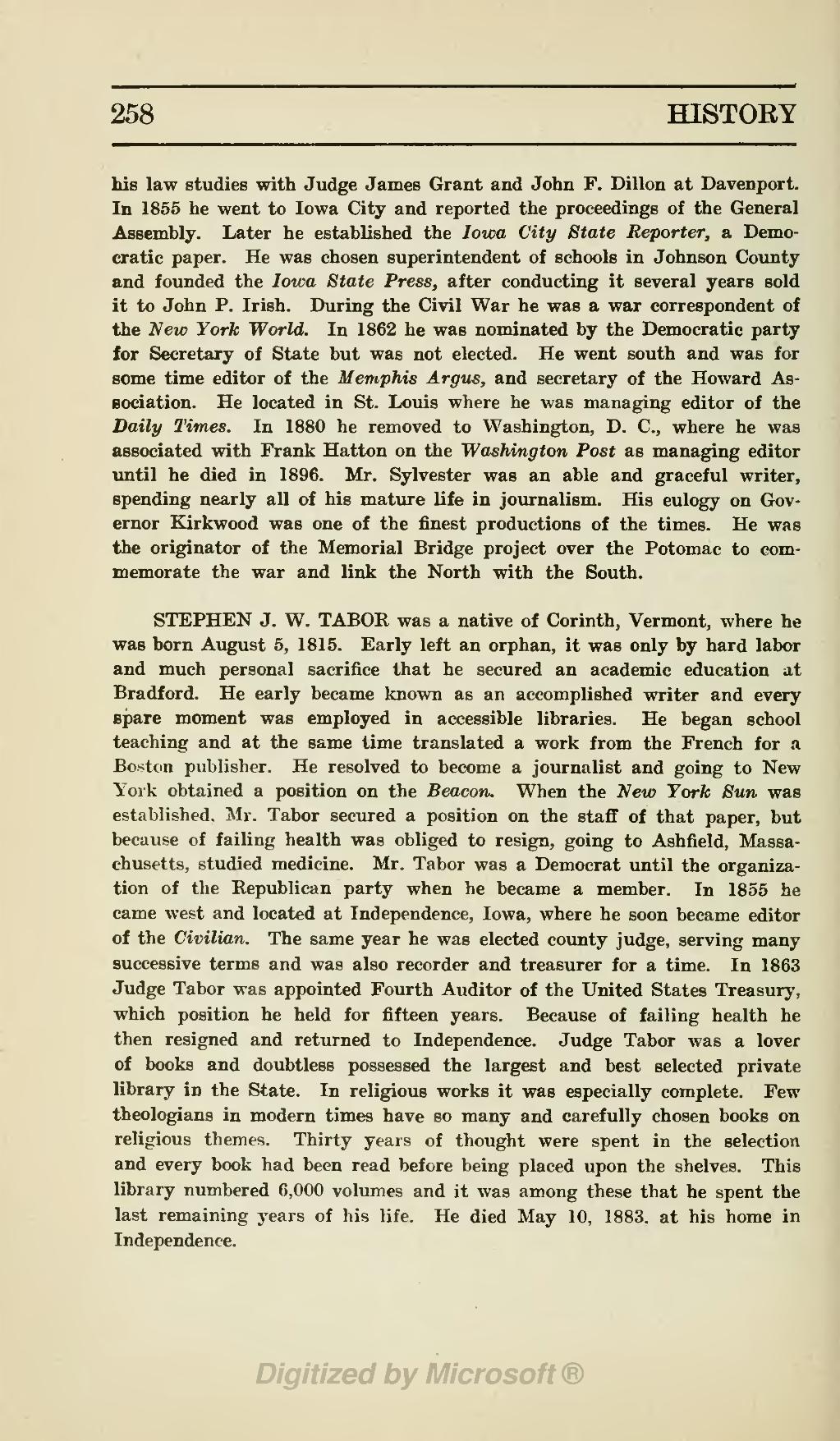his law studies with Judge James Grant and John F. Dillon at Davenport. In 1855 he went to Iowa City and reported the proceedings of the General Assembly. Later he established the Iowa City State Reporter, a Democratic paper. He was chosen superintendent of schools in Johnson County and founded the Iowa State Press, after conducting it several years sold it to John P. Irish. During the Civil War he was a war correspondent of the New York World. In 1862 he was nominated by the Democratic party for Secretary of State but was not elected. He went south and was for some time editor of the Memphis Argus, and secretary of the Howard Association. He located in St. Louis where he was managing editor of the Daily Times. In 1880 he removed to Washington, D. C., where he was associated with Frank Hatton on the Washington Post as managing editor until he died in 1896. Mr. Sylvester was an able and graceful writer, spending nearly all of his mature life in journalism. His eulogy on Governor Kirkwood was one of the finest productions of the times. He was the originator of the Memorial Bridge project over the Potomac to commemorate the war and link the North with the South.
STEPHEN J. W. TABOR was a native of Corinth, Vermont, where he was born August 5, 1815. Early left an orphan, it was only by hard labor and much personal sacrifice that he secured an academic education at Bradford. He early became known as an accomplished writer and every spare moment was employed in accessible libraries. He began school teaching and at the same time translated a work from the French for a Boston publisher. He resolved to become a journalist and going to New York obtained a position on the Beacon. When the New York Sun was established, Mr. Tabor secured a position on the staff of that paper, but because of failing health was obliged to resign, going to Ashfield, Massachusetts, studied medicine. Mr. Tabor was a Democrat until the organization of the Republican party when he became a member. In 1855 he came west and located at Independence, Iowa, where he soon became editor of the Civilian. The same year he was elected county judge, serving many successive terms and was also recorder and treasurer for a time. In 1863 Judge Tabor was appointed Fourth Auditor of the United States Treasury, which position he held for fifteen years. Because of failing health he then resigned and returned to Independence. Judge Tabor was a lover of books and doubtless possessed the largest and best selected private library in the State. In religious works it was especially complete. Few theologians in modern times have so many and carefully chosen books on religious themes. Thirty years of thought were spent in the selection and every book had been read before being placed upon the shelves. This library numbered 6,000 volumes and it was among these that he spent the last remaining years of his life. He died May 10, 1883, at his home in Independence.
